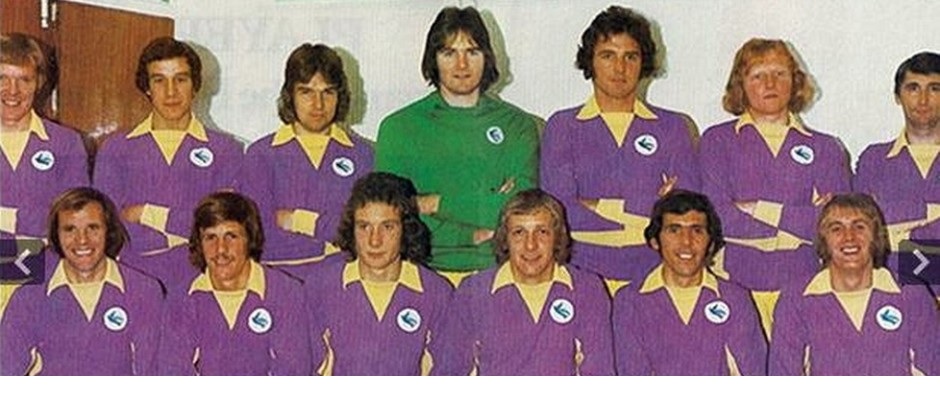
Well, the good news is that I’d say Cardiff City played as well as they’ve done in weeks in their 2-2 home draw with Plymouth Argyle – in fact, I’d rate it as our best showing since we had the better of a goalless draw at Stoke in November.
The not so good news though is that a Plymouth team which has the sixth best goal scoring record in the division to go with the fourth worst defensive record came here to take us on in a game of attacking football which provided opportunities for us to show what we’ve got when it comes to creative and entertaining football. The truth was though, that, for much of the time, a visiting team that has spent fairly modestly on younger players looked better equipped in those departments than us with our collection of more established names – albeit they are either cheap signings or here on loan.
Plymouth still haven’t won an away game this season, but I have a sneaking suspicion that their camp are thinking that today represented the closest they’ve come so far to getting those elusive three points on their travels.
One of the reasons I say that is that, like virtually every side we play in this league, Plymouth made the task of keeping the ball under control on the pristine pitch in unseasonably good conditions look the simple job that it should be for Championship standard footballers. Sadly, as is normal with City, the next misplaced pass, poor first touch, shoddy piece of ball control or mad option taken never seemed far away.
Why should this be? My view is that we are still paying for a preference for the physical over the technical – I say that while accepting that to target creativity and technical quality to the exclusion of things like physique and power is a recipe for problems. For years we chose the opposite approach for seasons on end at a time when the British game was clearly changing with the technical and creative side of football being favoured over what I’ll call virtues traditionally associated with the British (English) game.
You get the impression that the decision makers at the club now want to move on to what has become the norm in the domestic game and place more emphasis on passing the ball correctly. After all, for the last three season, at least, there have been attempts at changing the way we play made, only for an acceptance that we still aren’t good enough technically to operate on a level footing with most of our divisional rivals to eventually be recognised and therefore we end up reverting to the type of game which characterised us through the 2010s.
As Plymouth took control of the game after going 1-0 up, I found myself wondering what the club website commentary would be making of it all. I get to hear more of their commentaries these days and, recently, I have been struck by how often they get excited because, for a second or two, it looks like City are in business only for the opportunity to disappear as quickly as it had surfaced.
Sometimes the opportunity is lost because a player miscontrols the ball, but much more often it seems to me that the pass which should be creating a chance for us lacks quality. You get used to hearing things from the commentators like it was an awkward ball to control and they’re right in coming to that conclusion, but, too often, the point is that it shouldn’t have been an awkward ball to control at all because the pass being attempted is a simple one – or at least it should be for Championship footballers.
Having said all of that, I I feel I’m being a bit cruel in concentrating on City’s technical shortcomings today because, as I mentioned at the start, I thought we played quite well against Plymouth in what was one of our most entertaining matches of the season – especially since the opening weeks of the campaign.
Indeed, during our best spell of the game in the minutes after we’d turned our 1-0 deficit into a 2-1 lead, I’d say we put together one of our best passing movements of the season, even if it did all end in pretty scruffy fashion as Ryan Wintle’s misfit shot was diverted a yard wide by Yakou Meite.
The frustration comes from the fact that on a day when we attacked with more quality than we normally do, we did not have the best of times defensively.
City have been good at the back for much of this campaign, but we conceded two poor goals today. Perry Ng and Dimitrios Goutas did not cover themselves in glory with Sheffield Wednesday’s goal on Saturday and they were part of a right side of our back four that was opened up too easily on eighteen minutes as Morgan Whittaker easily knocked in Ben Waine’s cross from six yards out.
In the minutes which followed this goal, Plymouth looked bankers for a first away win as they cashed in on City being wide open to cross field passes to their left flank and we slipped into the pointless way of playing out from the back which does us far more harm than good – you know, the type of football which goes forward, sideways, back, back, back.
At 1-0 down with our home record in recent weeks becoming as bad as it was in the last three seasons, it was hard to see how City could find a way back into the match until Plymouth helped us out by showing why their goals against record is so bad.
Jamilu Collins’ pass down the left was over hit and Karlan Grant had given up chasing it – it should have been easily dealt with, but visiting midfielder Matt Butcher got his angles all wrong and rolled his back pass from about twenty five yards out wide of goalkeeper Conor Hazard
What followed evoked memories of Jason Bowen’s classic own goal in an FA Cup tie against Crewe twenty three years ago where goalkeeper Mark Walton sprinted after a backpass that was always just out of his reach and ended up finishing a narrow loser to the ball in the race to see which one would hit the back of the net first. Hazard was always close to the ball, but never close enough and it had crossed the line before his frantic and unsuccessful attempt to prevent the goal.
With their lead having been lost in such comical fashion, Plymouth’s confidence shrank and half time arrived with the teams evenly matched, but it was City who took charge with the second half barely two minutes old.
As usual, Rubin Colwill divides opinions among the fanbase, but, the Hull game apart, I think he’s been playing well since he’s been in the starting eleven. That said, his cross when he was worked into space following a short corner routine was sloppy and much too low, but he got lucky as a defender’s block flew out to Grant who cracked home first time from nearly twenty five yards out for one of City’s best goals of the season.
Besides Meite’s close miss that I mentioned earlier, Mark McGuinness headed a corner a yard wide and someone with better attacking instincts than Collins might have made Plymouth pay after a lovely pass by Colwill had played the full back into space well inside the penalty area during City’s period of dominance.
Plymouth had rotated their starting eleven and were therefore able to bring on three of their “big guns” when City were playing well. The substitutions changed the flow of the game, but many City fans were arguing that the replacement of Colwill and Kion Etete, having one of his good days as attack leader, played just as big a part in the transformation in the last quarter of the match..
Besides introducing Josh Bowler and Ollie Tanner on to the wings, Meite moved to centre forward and Grant to number ten, but the attacking impetus City had was lost until the closing minute or two and Argyle soon equalised as Whittaker’s fierce snapshot from the corner of the penalty area was denied by a fine Alnwick save. However, the keeper was left to fume at the lack of help he got from his defenders as the visitors’ top scorer reacted first to score at the second attempt.
Plymouth wasted a great chance when Wintle did well to block a close range shot, but the ball fell to one of the three big guns I mentioned earlier as Bali Mumba smacked a shot from no more than four yards out against the bar.
There were a few more hair raising moments for City, but they roused themselves in the last two or three minutes as Grant was close to heading a winner from a cross by another sub, Callum Robinson and Tanner put over two good crosses. The first of these saw Wintle denied by a desperate Hazard and then the midfielder, showing impressive stamina late on in the game, challenged for a header – the ball clearly was put out for a corner off a defender, but referee Andy Davies, whose frequent mistakes tended to cancel each other out, gave a goal kick and City had lost their last chance of winning a game where a point apiece was probably a fair outcome, notwithstanding my earlier comments about our fairly obvious limitations.



